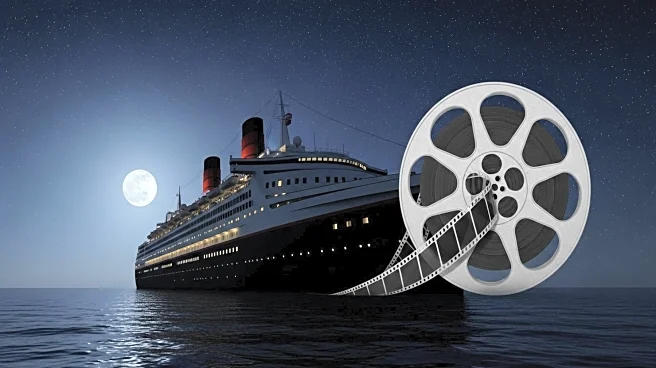What's Happening?
James Cameron's epic film 'Titanic' faced significant skepticism and negative buzz prior to its release, largely due to its massive budget and production challenges. Producer Jon Landau recounts how a carefully
crafted trailer played a pivotal role in changing perceptions about the film. The trailer, which was longer than typical, showcased the movie's story and feel, helping to convey its potential to audiences and industry insiders. Despite initial resistance from Paramount's marketing team, the trailer was eventually tested at ShoWest, where it received positive feedback, leading to a special dispensation for its release.
Why It's Important?
The success of the 'Titanic' trailer highlights the critical role of marketing in shaping public perception and influencing box office outcomes. By effectively communicating the film's narrative and emotional depth, the trailer helped mitigate concerns about its budget and production issues. This case underscores the importance of strategic marketing decisions in the film industry, where first impressions can significantly impact a movie's commercial success. The positive reception of the trailer contributed to 'Titanic' becoming a blockbuster hit, demonstrating the power of visual storytelling in overcoming negative pre-release buzz.
What's Next?
Following the successful release of the 'Titanic' trailer, the film went on to achieve massive box office success and critical acclaim. The positive turnaround in public perception paved the way for its eventual status as a cultural phenomenon. The experience serves as a valuable lesson for filmmakers and studios in the importance of strategic marketing and audience engagement. As the industry continues to evolve, the principles demonstrated by 'Titanic's' marketing strategy remain relevant for future film releases, particularly those facing similar challenges.
Beyond the Headlines
The story of 'Titanic's' trailer success reflects broader themes in the entertainment industry, such as the impact of media narratives and the role of public relations in shaping a film's legacy. It also highlights the collaborative efforts required between filmmakers and marketing teams to achieve a cohesive promotional strategy. The case serves as a reminder of the potential for creative solutions to overcome industry skepticism and achieve commercial success, reinforcing the importance of innovation in film marketing.










